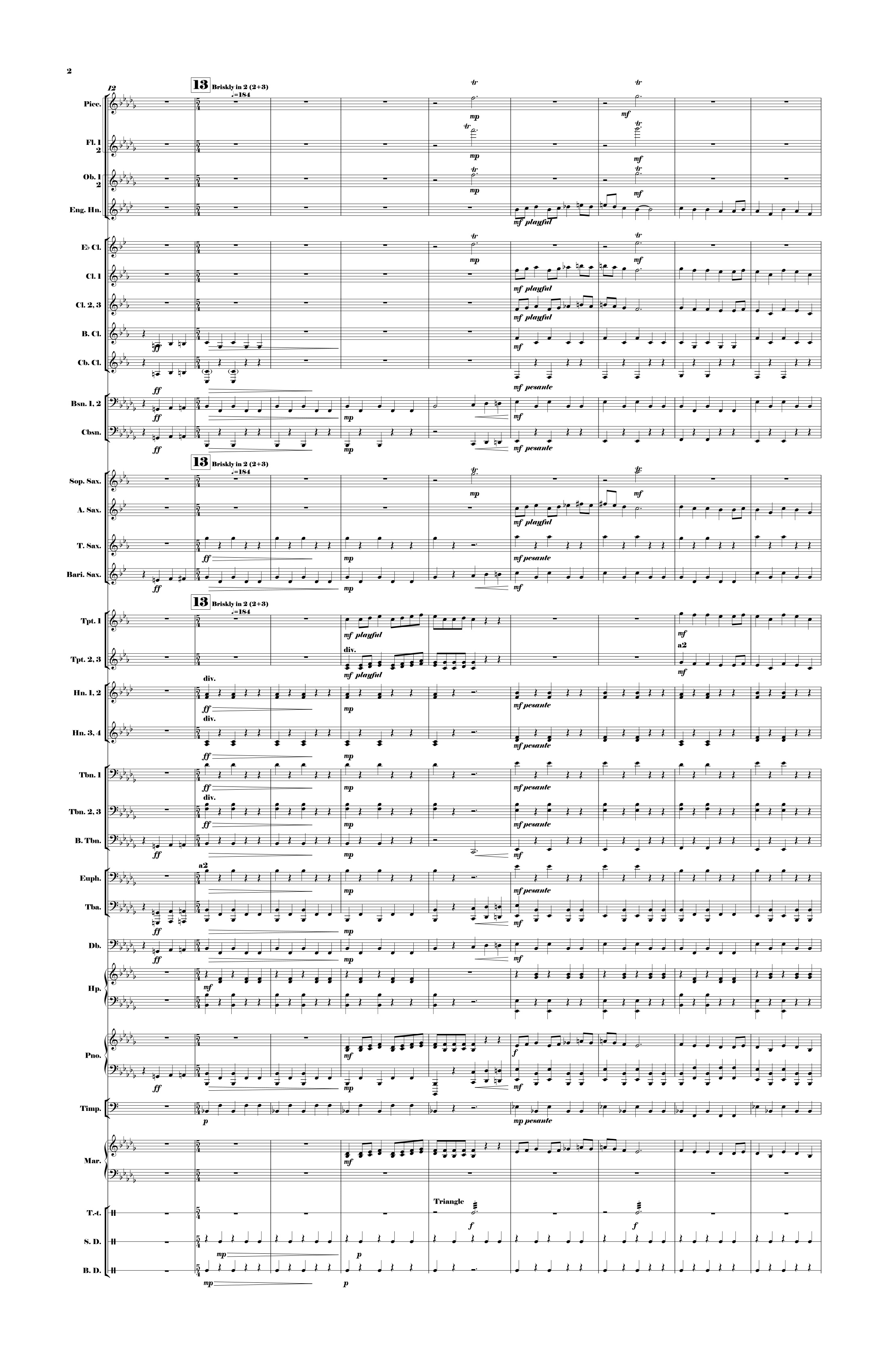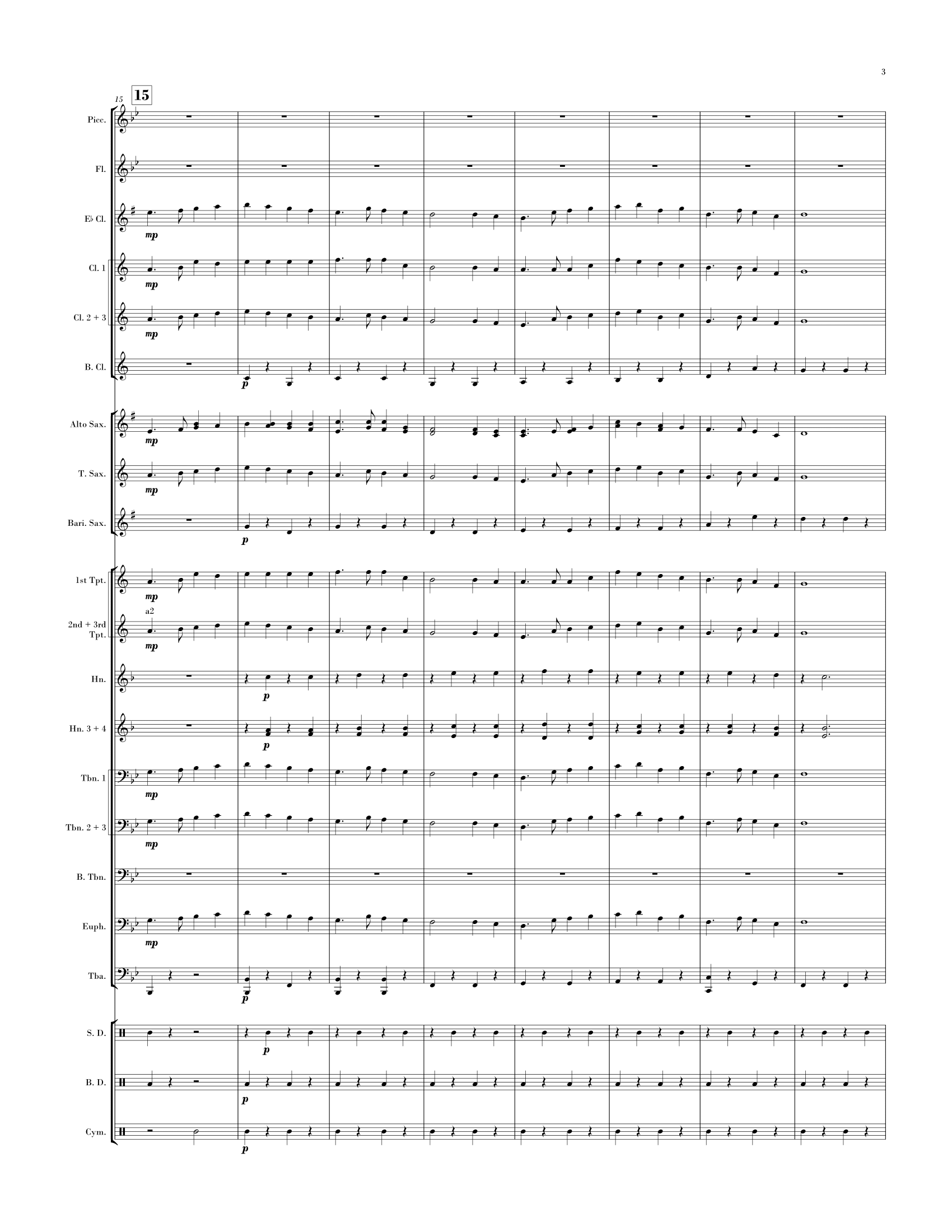 Image 1 of 4
Image 1 of 4

 Image 2 of 4
Image 2 of 4

 Image 3 of 4
Image 3 of 4

 Image 4 of 4
Image 4 of 4





In the Bottoms: Introduction and Juba Dance (band)
Instrumentation: wind band
piccolo, flute (div.), oboe, clarinet 1-2, bass clarinet, bassoon, alto saxophone 1-2, tenor saxophone, baritone saxophone, trumpet 1-3, horn 1 (div.), horn 2 (div.), trombone 1-2, trombone 3/bass trombone, euphonium, tuba, timpani, snare drum, bass drum, cymbals, chimes, glockenspiel, xylophone, marimba
Arranged: 2022
Instrumentation: wind band
piccolo, flute (div.), oboe, clarinet 1-2, bass clarinet, bassoon, alto saxophone 1-2, tenor saxophone, baritone saxophone, trumpet 1-3, horn 1 (div.), horn 2 (div.), trombone 1-2, trombone 3/bass trombone, euphonium, tuba, timpani, snare drum, bass drum, cymbals, chimes, glockenspiel, xylophone, marimba
Arranged: 2022
Instrumentation: wind band
piccolo, flute (div.), oboe, clarinet 1-2, bass clarinet, bassoon, alto saxophone 1-2, tenor saxophone, baritone saxophone, trumpet 1-3, horn 1 (div.), horn 2 (div.), trombone 1-2, trombone 3/bass trombone, euphonium, tuba, timpani, snare drum, bass drum, cymbals, chimes, glockenspiel, xylophone, marimba
Arranged: 2022
Originally composed for piano by R. Nathaniel Dett. Arrangement commissioned by the Black Composer Revival Consortium
Premiered December 2022
Program note
In the Bottoms was written originally for piano by Robert Nathaniel Dett in 1913. This five-movement suite is meant to depict “negro life in the river bottoms.” For this arrangement, I took the introduction from the first and second movements of the piece, “Prelude (Night)” and “His Song.” The “Juba Dance'' is the last movement of the piece.
According to Wikipedia, the juba dance is an “African-American style of dance that involves stomping as well as slapping and patting the arms, legs, chest, and cheeks.” Typically, the dancers would form a circle to keep the rhythm and a solo dancer could get in the middle. Percussion instruments were often not allowed to be used by the slaves for fear of secret communication, so body percussion took their place. In the piece, the ostinato accompaniment line would be the equivalent of the rhythmic stomping and patting or clapping that would have taken place in a juba dance circle, while the melody would be sung or played on a fiddle.





